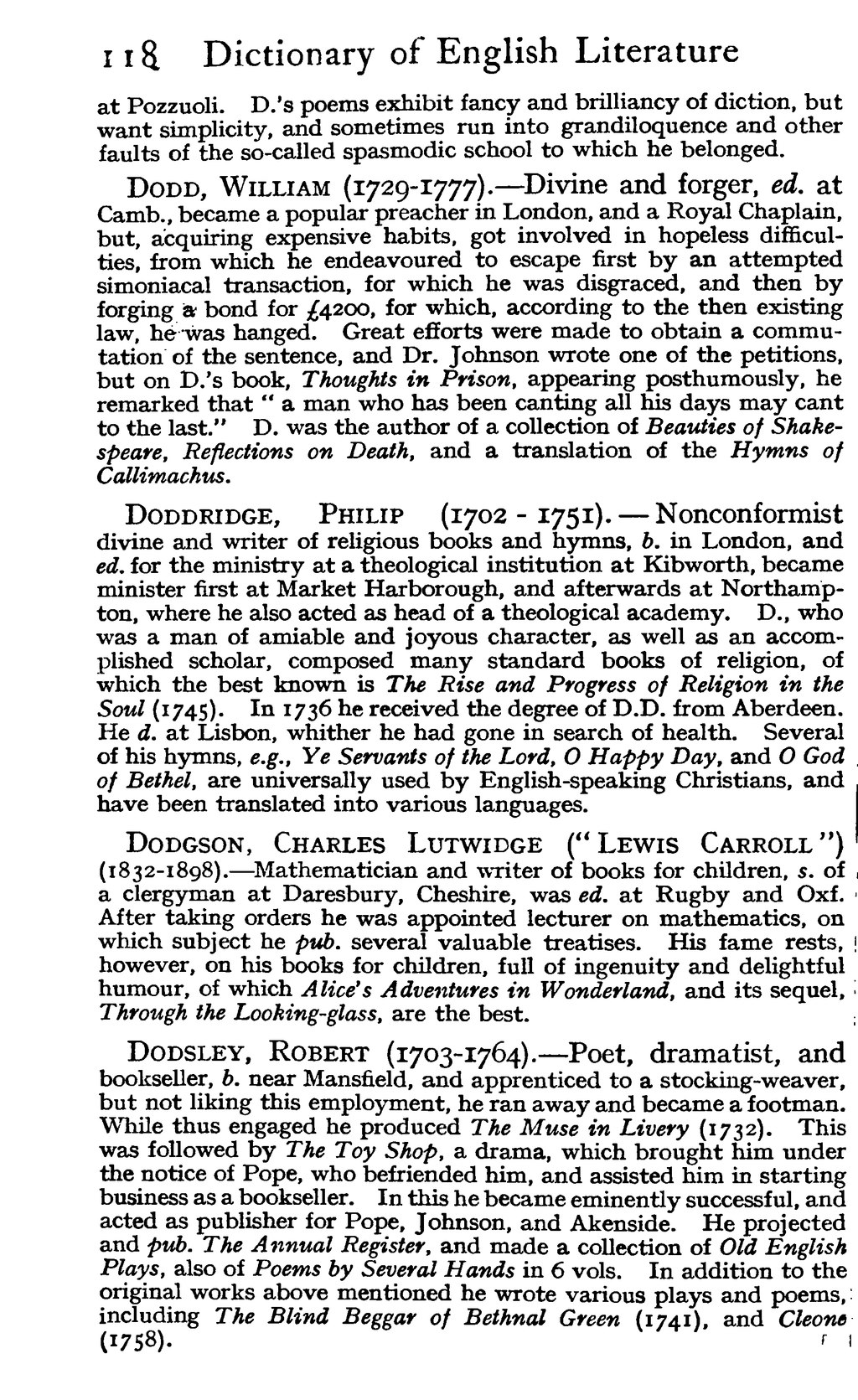at Pozzuoli. D.'s poems exhibit fancy and brilliancy of diction, but want simplicity, and sometimes run into grandiloquence and other faults of the so-called spasmodic school to which he belonged.
Dodd, William (1729-1777).—Divine and forger, ed. at Camb., became a popular preacher in London, and a Royal Chaplain, but, acquiring expensive habits, got involved in hopeless difficulties, from which he endeavoured to escape first by an attempted simoniacal transaction, for which he was disgraced, and then by forging a bond for £4200, for which, according to the then existing law, he was hanged. Great efforts were made to obtain a commutation of the sentence, and Dr. Johnson wrote one of the petitions, but on D.'s book, Thoughts in Prison, appearing posthumously, he remarked that "a man who has been canting all his days may cant to the last." D. was the author of a collection of Beauties of Shakespeare, Reflections on Death, and a translation of the Hymns of Callimachus.
Doddridge, Philip (1702–1751).—Nonconformist divine and writer of religious books and hymns, b. in London, and ed. for the ministry at a theological institution at Kibworth, became minister first at Market Harborough, and afterwards at Northampton, where he also acted as head of a theological academy. D., who was a man of amiable and joyous character, as well as an accomplished scholar, composed many standard books of religion, of which the best known is The Rise and Progress of Religion in the Soul (1745). In 1736 he received the degree of D.D. from Aberdeen. He d. at Lisbon, whither he had gone in search of health. Several of his hymns, e.g., Ye Servants of the Lord, O Happy Day, and O God of Bethel, are universally used by English-speaking Christians, and have been translated into various languages.
Dodgson, Charles Lutwidge ("Lewis Carroll") (1832-1898).—Mathematician and writer of books for children, s. of a clergyman at Daresbury, Cheshire, was ed. at Rugby and Oxf. After taking orders he was appointed lecturer on mathematics, on which subject he pub. several valuable treatises. His fame rests, however, on his books for children, full of ingenuity and delightful humour, of which Alice's Adventures in Wonderland, and its sequel, Through the Looking-glass, are the best.
Dodsley, Robert (1703-1764).—Poet, dramatist, and bookseller, b. near Mansfield, and apprenticed to a stocking-weaver, but not liking this employment, he ran away and became a footman. While thus engaged he produced The Muse in Livery (1732). This was followed by The Toy Shop, a drama, which brought him under the notice of Pope, who befriended him, and assisted him in starting business as a bookseller. In this he became eminently successful, and acted as publisher for Pope, Johnson, and Akenside. He projected and pub. The Annual Register, and made a collection of Old English Plays, also of Poems by Several Hands in 6 vols. In addition to the original works above mentioned he wrote various plays and poems, including The Blind Beggar of Bethnal Green (1741), and Cleone (1758)
